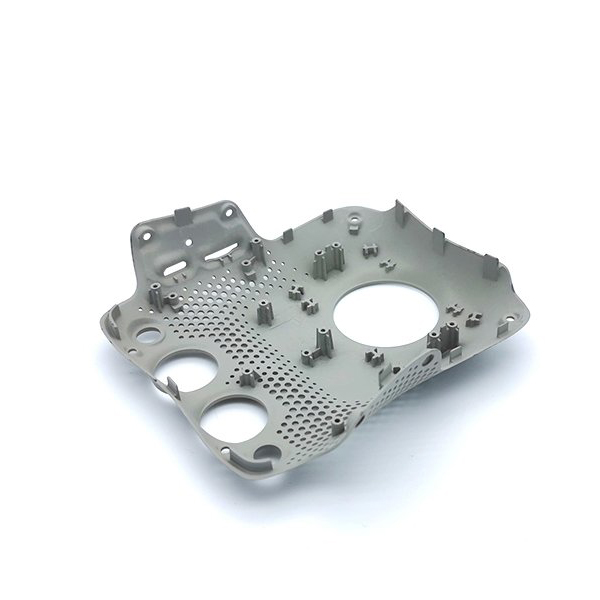Precision and Reliability: Magnesium Alloy CNC Medical Parts
2023-10-18
Introduction:
In the field of medical equipment manufacturing, precision, durability, and biocompatibility are of utmost importance. To meet these stringent requirements, manufacturers are increasingly turning to magnesium alloy CNC (Computer Numerical Control) machining for the production of medical parts. Magnesium alloys offer a unique combination of properties, making them ideal for creating high-quality medical components. In this blog post, we will explore the benefits and applications of magnesium alloy CNC medical parts, highlighting their significance in the healthcare industry.
1. Understanding Magnesium Alloy CNC Medical Parts:
Magnesium alloys are lightweight materials known for their excellent strength-to-weight ratio, exceptional machinability, and biocompatibility. CNC machining, a precise manufacturing process that utilizes computer-controlled machines, is widely employed to shape and fabricate complex medical parts from magnesium alloys. The result is a range of medical components that offer exceptional performance and reliability.
2. Key Benefits of Magnesium Alloy CNC Medical Parts:
a. Lightweight and Strength: Magnesium alloys are significantly lighter than other metals commonly used in medical applications, such as stainless steel or titanium. This lightweight characteristic makes magnesium alloy medical parts highly desirable, particularly for devices that require reduced weight, such as orthopedic implants or handheld medical instruments. Despite their lightweight nature, magnesium alloys retain impressive strength, ensuring structural integrity and durability.
b. High Precision: CNC machining allows for the creation of intricate and precise medical components with tight tolerances. This level of precision is vital in the medical field, where even small deviations can impact the functionality and performance of devices. Magnesium alloys, with their excellent machinability, enable the production of complex geometries and fine details, resulting in accurate and reliable medical parts.
c. Biocompatibility: Magnesium alloys exhibit excellent biocompatibility, meaning they can be safely implanted in the human body without adverse reactions. This makes them suitable for a range of medical applications, including orthopedic implants, cardiovascular devices, and surgical instruments. Magnesium alloys also possess natural antibacterial properties, further enhancing their appeal in medical settings.
d. Corrosion Resistance: Magnesium alloys used in CNC medical parts undergo surface treatments, such as coatings or anodization, to enhance their corrosion resistance. This protective layer ensures longevity and reliability of the medical components, even in environments where exposure to bodily fluids or harsh chemicals is likely.
e. Thermal Conductivity: Magnesium alloys exhibit excellent thermal conductivity, which is advantageous in medical devices that require efficient heat dissipation. For example, in devices such as surgical instruments or electrosurgical tools, magnesium alloy components help minimize heat buildup, reducing the risk of tissue damage during procedures.
3. Applications of Magnesium Alloy CNC Medical Parts:
a. Orthopedic Implants: Magnesium alloy medical parts find applications in orthopedic implants, including plates, screws, and spinal fixation devices. Their lightweight nature and biocompatibility make them ideal for promoting patient comfort and aiding in the healing process.
b. Surgical Instruments: Magnesium alloy CNC medical parts are utilized in the production of surgical instruments like forceps, retractors, and scissors. The lightweight construction of these instruments reduces strain on medical professionals during prolonged procedures, improving their ergonomics and minimizing fatigue.
c. Imaging and Diagnostic Equipment: Components made from magnesium alloys are used in imaging and diagnostic equipment such as CT scanners, MRI machines, and X-ray systems. The lightweight nature of these alloys helps reduce the weight of the equipment, making them easier to handle and maneuver.
d. Cardiovascular Devices: Magnesium alloy medical parts contribute to the manufacturing of cardiovascular devices, including stents, heart valves, and pacemakers. The biocompatibility and corrosion resistance of magnesium alloys make them suitable for long-term implantation and interaction with the human circulatory system.
Conclusion:
Magnesium alloy CNC medical parts offer a winning combination of lightweight construction, high precision, biocompatibility, corrosion resistance, and thermal conductivity. Their usage in the healthcare industry enhances the quality and reliability of medical equipment, improves patient outcomes, and provides medical professionals with advanced tools for diagnosis and treatment. As the demand for innovative medical devices continues to grow, magnesium alloy CNC medical parts will play an increasingly significant role in shaping the future of healthcare technology.



